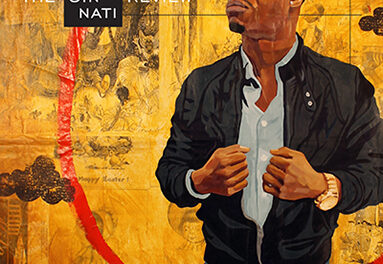I.
In the summer of 1955, at the tender age of fourteen, I ran away to sea. The vessel upon which I staked my escape was a fifty-two-foot yawl captained by an Episcopal bishop, Thomas Gulliver Mayhew, the descendant of missionaries, a wise and gentle man who was also, as is sometimes the case, a devout alcoholic. He nearly got us killed, the bishop did. But I don’t hold that against him all these years later because the fear I felt and what I found in it, that, too, is part of the story.
The life from which I sought to abscond was a peculiar one. I was living with a family called the Templetons in the village of Salter’s Point, along the southern coast of Massachusetts, having been stashed there by my parents for the summer while they vacationed in Maine. I was to serve as a companion to the Templeton boys in exchange for room and board.
It did not occur to me to question why my parents would broker such an arrangement. My father was a cultural theorist, little known in his field and ravenous for tenure. He spent the school year locked away in his study, enveloped in pipe smoke. Summers of kidless calm were the concession extracted by my mother. At six, I had shipped off to a sleep-away camp with my brother (age ten) as chaperone.
How my mother convinced the Templetons to hire me on that year, I cannot say. I knew only that she packed me two rattan suitcases full of shirts and underwear. My father described what lay ahead as a “fine opportunity.” I had wanted to attend the camp where my brother was a counselor in training, but it was deemed too extravagant, by virtue of its chlorinated swimming pool.
On the appointed day, we arrived to find the Templeton boys standing at attention on the porch, combed and smiling, as if they had been there since dawn. We got out of the car and stood awkwardly on the lawn. After a minute, the screen door swung open and Mrs. Templeton emerged, a little out of breath. She was a tall woman with glistening legs. A wave of blonde hair veiled one of her eyes, in the style of the starlet Veronica Lake. Her outfit—snug angora sweater, pencil skirt—had a flagrant quality, ill suited to the morning hours.
My parents endeavored not to gawk. Mrs. Templeton explained that her husband had been called away on business, where he would remain, more or less, for the rest of that summer. My mother spent a few minutes admiring the daylilies while my father scrutinized his hat. I was presented to the boys, Peter and Samuel, who gazed upon me with undisguised awe.
I was tall for fourteen and had what was called in those days “a well-developed physique.” I spent an hour each night lifting dumbbells in the precise manner prescribed by Charles Atlas. On waking, I puffed through two hundred push-ups and sit-ups. It was my fervent intention to replace Eddie Mathews at third base for the Milwaukee Braves.
With the benefit of age, I can see that these regimens functioned as a means of self-protection. Though we didn’t have a telltale last name or attend services, the fact of our Judaism was known in our town—my father was the first Jewish professor the college had hired—and was something that seemed to derive power from the silence around it, like a stain that goes unremarked upon and can therefore never be scrubbed. Two years earlier the Rosenbergs had been executed for espionage, and though I never heard anyone say so out loud, their trial had cast Jews as prime suspects in the flourishing hunt for Communists. It was for this reason, and this reason only, that my parents approved of my athletic aspirations.
In a few minutes, my folks were gone. Mrs. Templeton led me inside, then wheeled around. “Look at you,” she said, taking the balls of my shoulders into her hands and squaring them up. “You’re a man, aren’t you? It will be nice to have one around the house.” She turned to Peter and Sam, who were still staring at me. “Won’t that be nice, boys?”
It sounds rather stagy in the telling. Yet I was instantly captured: by Mrs. Templeton’s glamour, by her frank appraisal, by the adulation of her sons, perhaps most of all by my abrupt promotion to manhood.
. . .








